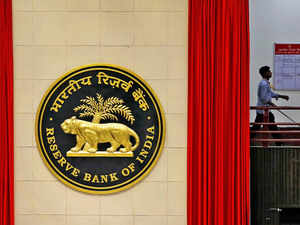 Reuters
ReutersPrivate sector banks have expressed concerns about curbs on the tenure of CEOs.
State-run lenders say the proposal wrongly seeks to empower non-executive board members, a move that could have adverse consequences as government nominees may not possess skills needed to run specialised bank functions.
RBI open to dialogue: IBA
The Indian Banks' Association (IBA) made a representation to the RBI after deliberations among public sector, private sector and foreign lenders last month, CEO Sunil Mehta said. The central bank has taken cognisance of the group's suggestions and is open to dialogue, he said.
"All three set of banks have their issues with this paper," Mehta said. "Public sector banks have to contend with the CVC (Central Vigilance Commission) and now will have to deal with the extended role of independent directors. Private sector banks have to be prepared with the restriction of CEO tenures and equity infusion by promoters and foreign banks do not even have a board here. All these concerns have been shared."
A key concern is mixing the roles of independent and executive directors, which could create complications in the future, he said.
"Independent directors are not full-time executives in the bank and many times they have no expertise in specialist functions like risk management or audit. Executives have an important role in the bank boards because they are a bridge between the management and boards. The proposed changes will create more problems," Mehta said.
The paper has suggested restricting the tenure of promoter CEOs and whole-time directors to 10 years and professional CEOs to 15 years. It wants the heads of functions such as risk, compliance and audit to report directly to independent directors instead of CEOs as is the case currently.
'Ill-conceived'
“This is an ill-conceived and dangerous paper which will reduce bank CEOs to just sales roles while transferring all important functions to boards,” said the CEO of a mid-sized private sector bank. “Perhaps the RBI thinks that curtailing CEO powers would prevent mishaps like Yes Bank or IL&FS. This is a very simplistic view of the problem and is like throwing out the baby with the bath water.”
Bankers are taking the discussion paper seriously as its tone and the details it contains indicate the central bank is testing the waters before finalising new rules. Bankers say the paper is also an attempt by the regulator to shift the blame onto CEOs for its own supervision failures, especially in the last four years.
“Everyone knew for years that things were not good at Yes Bank,” said the CEO of a large private sector bank. “Similarly, IL&FS as a core investment company has 347 subsidiaries created right under the RBI's watch. Then we had the Nirav Modi scam at PNB and later a fraud at DHFL. Now, instead of tightening regulations and fixing internal accountability, they have come up with a shoddy attempt at finding a scapegoat, which is the CEO.”
Public sector bank CEOs, who are directly appointed by the government and hence do not have a long tenure, are also not happy with the proposals. One said the regulator wants to make drastic changes to a system that doesn’t need it.
“Nowhere in the world have such sweeping changes been even thought of,” said the CEO of a state-owned bank. “As PSU bank CEOs, we are used to seeing government-appointed independent directors who come to meetings with notes pushing their vested agenda without having any understanding of the subject. It is all very well to say that the head of risk will brief the board directly but risk is just a function among many in the bank. Risk by its nature is intertwined with loan growth and pricing. Can a risk manager give the board a holistic picture of the bank?”
If the proposals are implemented, it will hurt India’s banking industry, said the CEO of the large private sector bank cited above.
“If the RBI really wants to keep executives out of boards, it can look at the European model, which has an executive board and also a non-executive board, which work in tandem,” he said. “The RBI has to realise the problems; there is no one-stop solution. The problems in PNB, Punjab Maharashtra Cooperative Bank were not due to CEOs. DHFL is a different case and so is IL&FS.”
He said the short tenure of public sector CEOs does not allow them to make effective changes, giving the example of JP Morgan CEO Jamie Dimon, whose long stint has allowed him to build an institution.
Read More News on
Download The Economic Times News App to get Daily Market Updates & Live Business News.
Read More News on
Download The Economic Times News App to get Daily Market Updates & Live Business News.









 Get Unlimited Access to The Economic Times
Get Unlimited Access to The Economic Times
